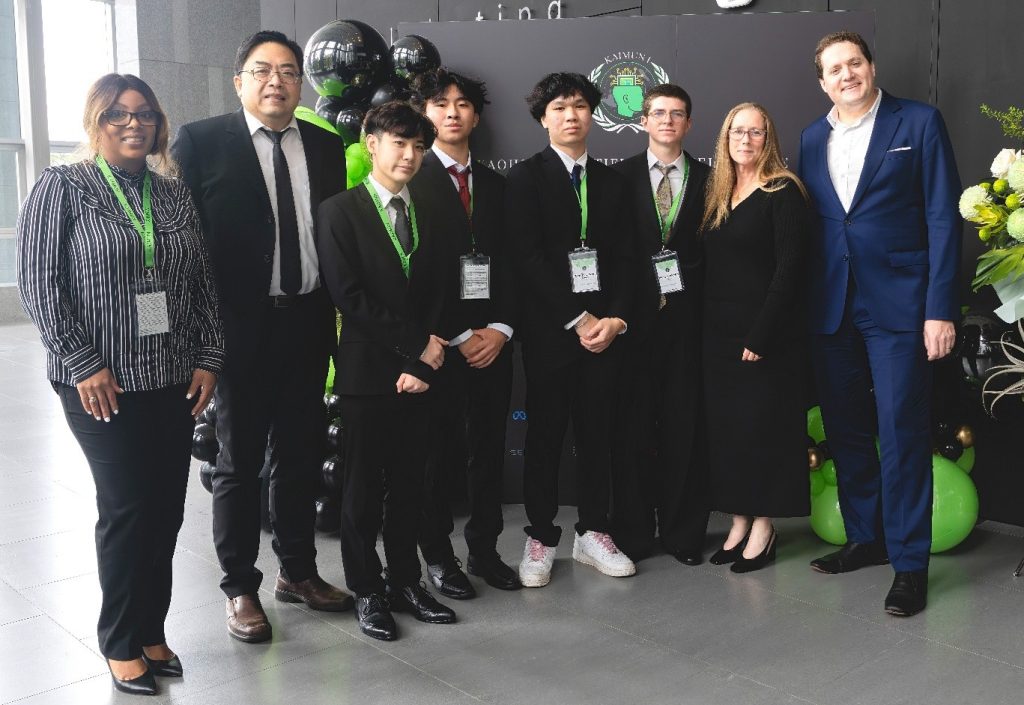The two-day first KAIMUN conference was a 100% student-led initiative, sponsored by tech giants
KAOHSIUNG, Taiwan — World leaders are stumbling over artificial intelligence. The technology is moving faster than policy, faster than law, faster than most people in charge can keep up. Two students in southern Taiwan saw that gap and decided to act.
Their solution was a Model United Nations unlike any other. Instead of recycling familiar debates on climate change or nuclear proliferation, they chose the defining issue of their generation: artificial intelligence.
That idea became KAIMUN 2025, the Kaohsiung Artificial Intelligence Model United Nations, which took place over August 16-17 at the Kaohsiung American School. It is the first international youth conference in Taiwan devoted entirely to the global politics of AI.
Student Vision, Global Stakes
The co-founders, Evan Yang and Geoffrey Wen, say the choice of topic was urgent. “AI is reshaping diplomacy, security, and human life faster than governments can respond,” Yang said. “If world leaders can’t keep pace, students should at least be preparing to debate it.”
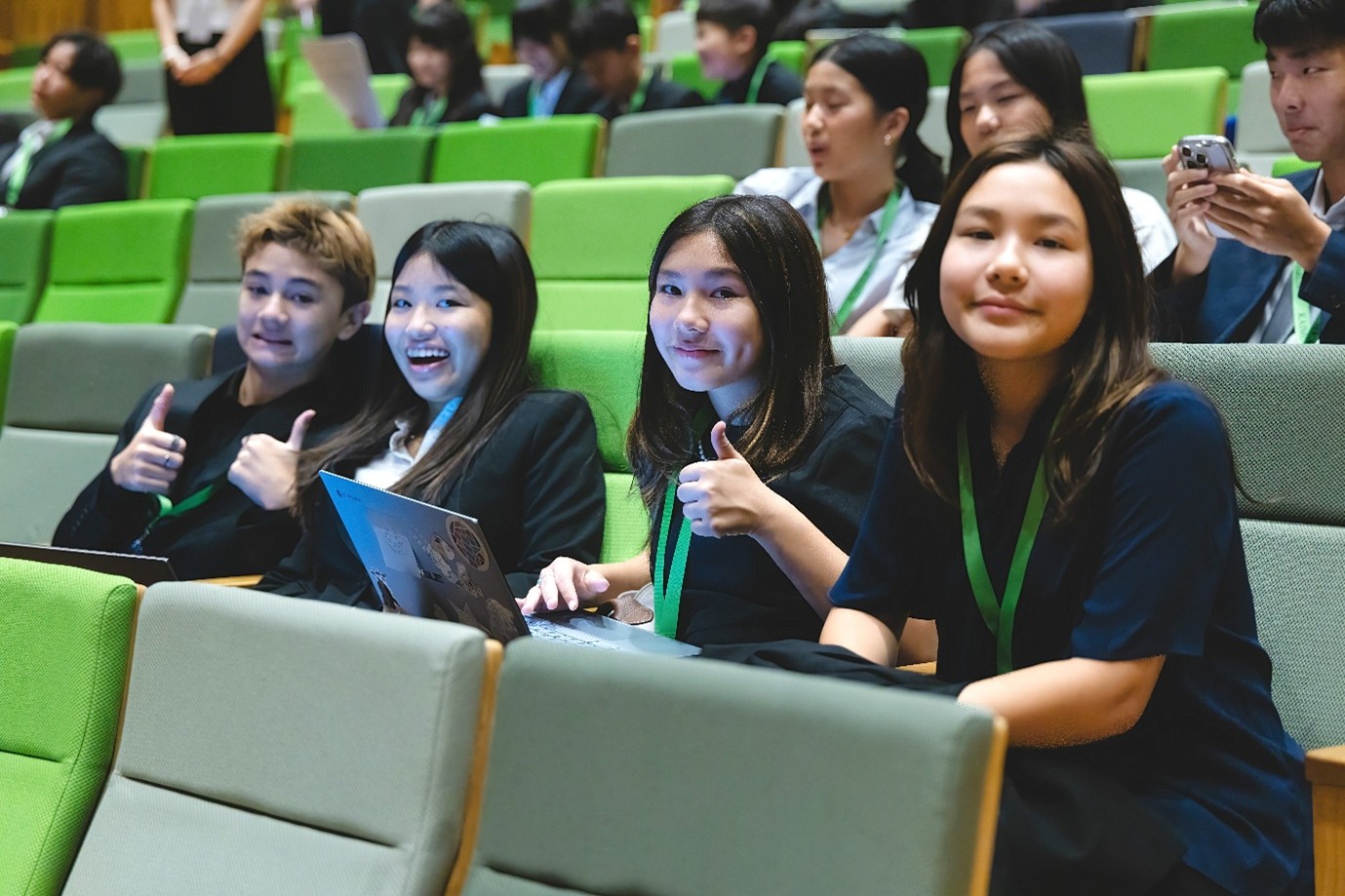
Kaohsiung’s New Identity
Kaohsiung itself is part of the story. Once the land of smokestacks and steel mills, the city is now pitching itself as Taiwan’s Silicon Valley of the south. At the opening ceremony, the deputy mayor called Kaohsiung “Taiwan’s next AI smart city.” NVIDIA is only the most famous of the tech giants to have recently announced new facilities here.
“Hosting this in Kaohsiung puts us right where AI is being built,” one student delegate said. “Where semiconductors are made, where the decisions actually ripple out.”
Big Tech in the Back Row
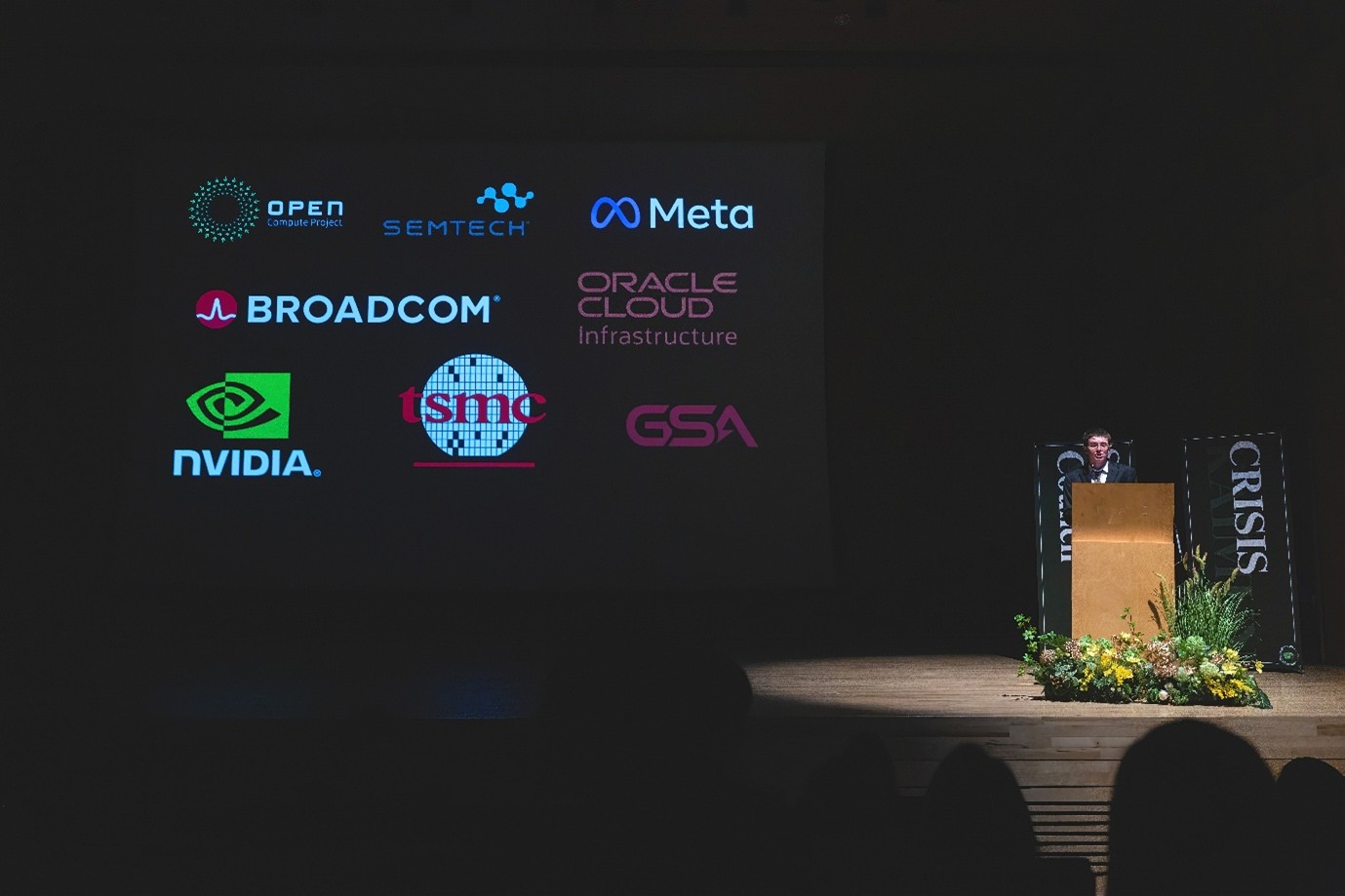
The conference was student-run but it carried the weight of industry. NVIDIA, Meta, Oracle, Broadcom, and TSMC all signed on as sponsors. These are names that rarely appear on a high school program. That backing gave the event legitimacy. The substance came from the delegates themselves.
They went straight at the topics politicians avoid: AI-powered surveillance, disinformation campaigns, lethal autonomous weapons. One committee even staged a simulated 2027 conflict between China and Taiwan.
“People are afraid to talk about these things,” said one student organizer. “That’s why we’re here. To practice having those conversations before it’s too late.”
Taiwan’s Seat, Still Empty
Taiwan’s peculiar status gave the debates an edge. “Taiwan makes the chips the world runs on, but it doesn’t even have a vote at the Model United Nations,” one delegate told the Kaohsiung Times. “We only have observer status.” As they drafted resolutions on AI transparency or autonomous weapons bans, the fact that Taiwan is not represented at either the model or real UN was always in the room. Yang put it bluntly: “Maybe the next generation of Taiwanese leaders will change that.”
Fear and Fascination
AI inspires awe but also dread. Older generations often see only the threat. Younger voices here sounded more balanced.
“Yes, AI will replace jobs,” one student said. “But so did the Industrial Revolution. It destroyed livelihoods, but it created more. The challenge is to guide this technology so it opens industries instead of deepening inequality.”
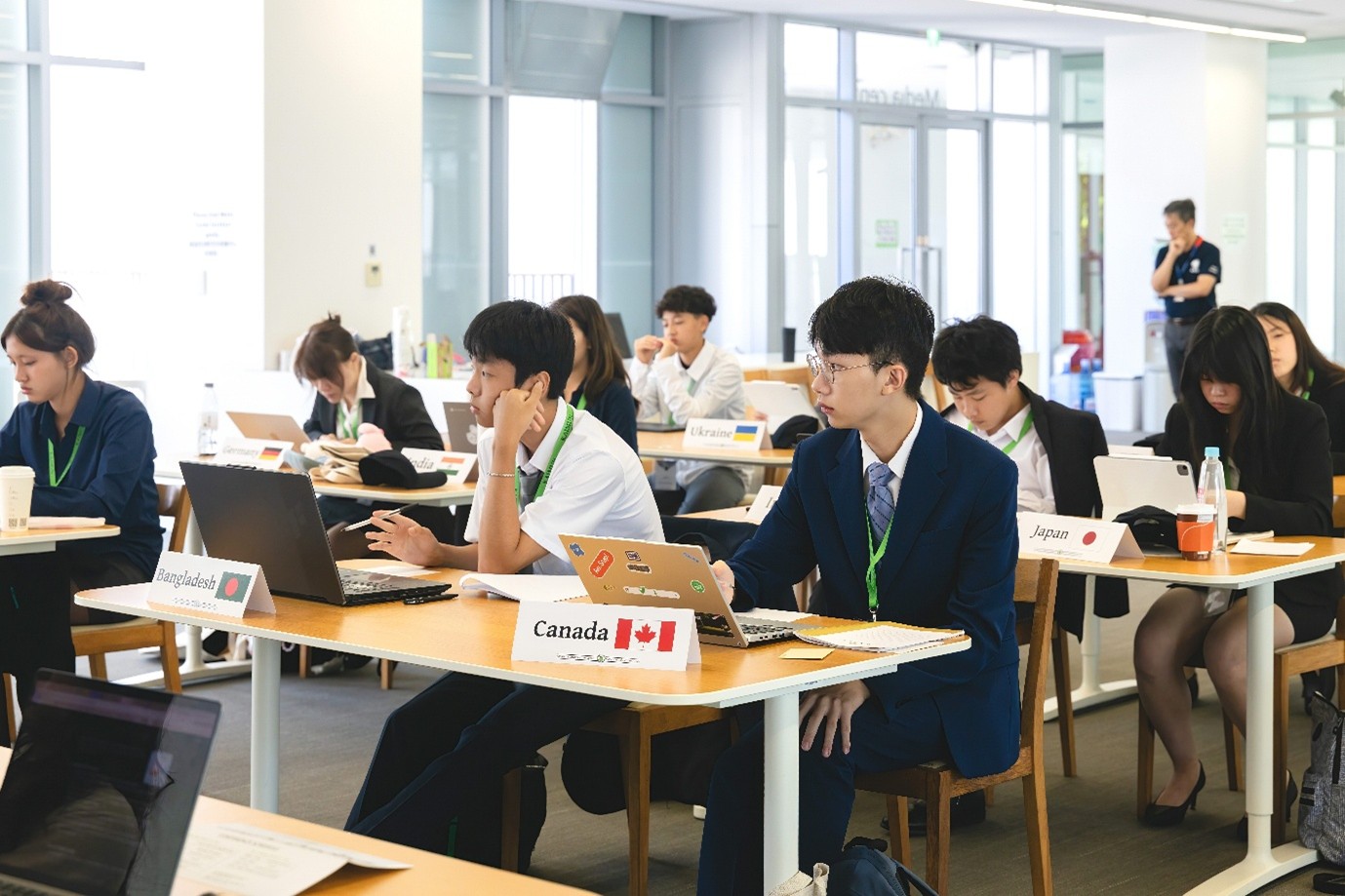
Others raised alarms about disinformation. “We already live in a world of fake everything. Fake photos, fake voices, fake news,” another student said. “It’s only going to get worse. That’s why regulation and awareness have to start now.”
Progress or Control
Beneath every argument was the same question. Is AI a tool for progress or for control? “It depends whose hands it’s in,” said one delegate. “Handled badly, it’s terrifying. Handled well, it could be our answer to inequality, to medicine, even to climate change.”
They agreed the right response isn’t panic and it isn’t blind trust. What’s needed is vigilance, curiosity, and the willingness to debate openly.
Rehearsing the Future
KAIMUN wasn’t about binding treaties. It was about rehearsal, training the next generation to argue, negotiate, and imagine.
Yes, they acknowledged that real-world countries may shrug off AI rules. But that, Wen argued, makes practice all the more important. “Politics is fractured,” he said. “Here, in a Model UN, collaboration is still possible. We can only hope that when it’s our turn, we’ll carry that spirit into the real thing.”
A First Step, Not the Last
Taiwan has long been a dominant player in the global chip game, but newcomer Kaohsiung is raising the stakes by betting its entire future on AI. Hosting the first student-run AI MUN here felt like a declaration: the next generation intends to be part of the conversation.
And the fact that this entire event was dreamed up and executed by high schoolers may be the most encouraging sign of all.
In a world where artificial intelligence will shape everything from defense to democracy, the students of Kaohsiung are not standing on the sidelines. They are pulling up a chair.
“This is just the beginning,” Yang said. “AI isn’t something to fear. It’s something we can and will shape.”


